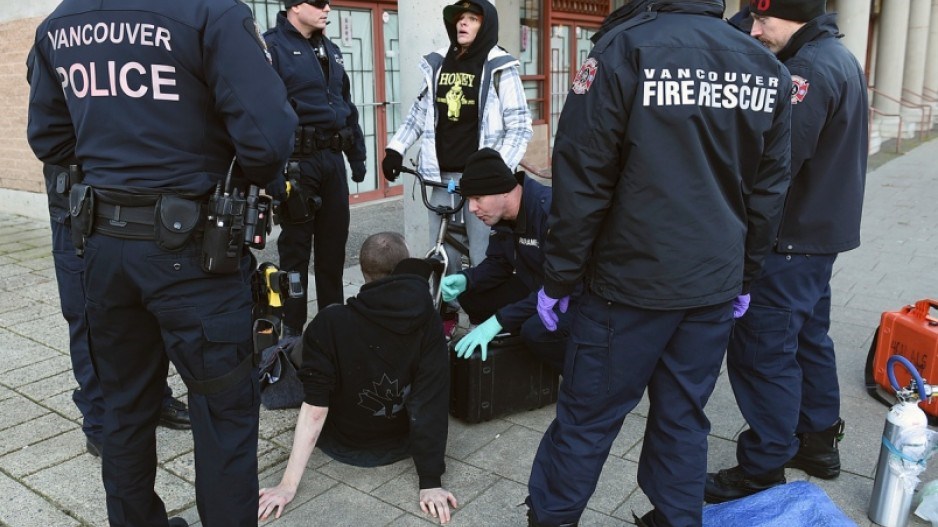B.C. has recorded another record month of drug-use fatalities – 175 in June compared with 171 in May.
The province has seen four months of back-to-back increases in deaths, “leaving behind grief and frustration while this public health emergency carries on into its fifth year," B.C. Coroners Service chief coroner Lisa Lapointe said.
There have been 728 illicit drug deaths at the year’s halfway point.
Deaths began to mount significantly in 2016 with 991 deaths. That rose to a peak of 1,546 in 2018 before falling to 981 last year.
The number of deaths for June in each health authority is at or near the highest monthly totals ever recorded, the service said.
“It is clear this is not just an opioid epidemic, with cocaine and methamphetamine/amphetamine detected in many drug deaths we investigate,” she said. “However, we do know that illicit fentanyl remains the most significant driver in the tragic number of deaths our communities are experiencing."
“We know the COVID-19 pandemic has impacted people who use drugs, as it has all British Columbians. Access to key harm reduction services has been a challenge and our social networks are smaller,” she said.
In the face of the double health emergency, Lapointe encouraged clinicians to support those at risk of overdose because of the toxic drug supply. She said avoiding the risks of street drugs and access to safe supply for those with the medical condition of addiction are essential to save lives.
“We are monitoring for the presence of hydromorphone in post-mortem toxicity results and have seen no evidence of a link between increased prescriptions and the increase in deaths.”
Hydromorphone is a semi-synthetic opioid used as a drug-replacement therapy for users of drugs such as heroin.
Provincial health officer Dr. Bonnie Henry said the numbers show ”the tragedy of overdose deaths from the toxic street drug supply in B.C. continues to escalate.”
“While much effort has been made to reduce harm, remove stigma and provide the care that people living with addiction need, the impacts of the pandemic have made the situation dire for too many," said Dr. Bonnie Henry, provincial health officer. "We remain focused on this critical work and will not let up.”
Former provincial health officer and now co-interim executive director at the BC Centre on Substance Use Dr. Perry Kendall reiterated the need for change in the way drug addiction is handled.
“Invest in a public health approach to substance use that promotes the health and equity of people who use drugs. This must include not only decriminalization, but also pharmaceutical alternatives to the toxic drug supply,” he said. “Alongside investments in an evidence-based substance-use system of care to support recovery, treatment and harm reduction, these are the critical steps needed to finally end this emergency."
Overdose Emergency Response Centre and BC Centre on Substance Use peer clinical adviser Guy Felicella agreed.
"I'm tired of waiting for what's necessary when the calls for these changes have been made over and over again,” he said. “And I'm tired of seeing people die while waiting for access to a safer supply or access to detox or to get into recovery. The waiting is killing people."
First Nations Health Authority chief medical officer Dr. Shannon McDonald said indigenous people continue to be disproportionately impacted.
“Real change is needed and we could begin with more of what works, namely harm reduction and a safe drug supply," McDonald said.
@Jhainswo


